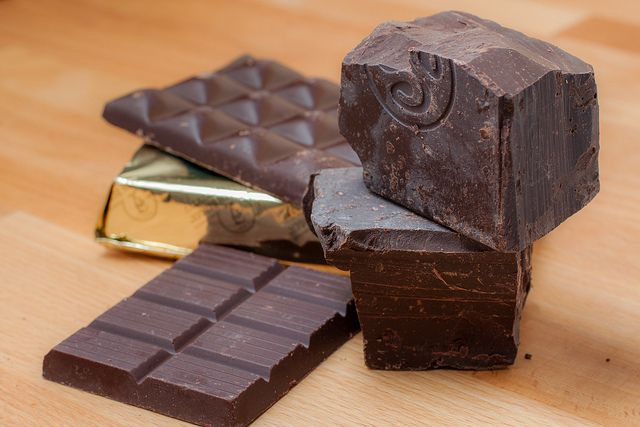5 Foods And Drinks To Avoid Before Bed: Get A Good Night Sleep By Choosing The Right Late-Night Snack

Make no mistake: your choice of late-night snack will have significant bearing on your sleep cycle. The wrong food or drink can subtract precious hours of rest and ensure drowsiness and irritability the following day. Over time, inadequate sleep patterns can lead to a variety of chronic health problems, including heart disease, kidney disease, high blood pressure, diabetes, stroke, obesity, and depression.
Tired of sleepless nights? Get your eight hours by avoiding these foods and drinks before bedtime.
1. Chocolate and other caffeine-filled foods and drinks.
A no brainer, perhaps. That said, an afternoon cappuccino or candy bar may be enough to disturb that night’s rest, as the body requires up to five hours to rid itself of caffeine. According to Timothy Rothers, director of research at the Sleep Disorders and Research Center of the Henry Ford Research Center, as little as 30 milligrams may wreak havoc on your sleep cycle.
2. Spicy Food
Indian, Mexican, and other spicy foods are all examples of terrible late-night meals. If consumed within three hours of bedtime, these snacks may wreck your sleep pattern, as they often induce indigestion and reflux.
"It's not that the spice interrupts your sleep," Mark Mahowald, professor of neurology at the University of Minnesota Medical School, told Yahoo Shine. "The spice causes heartburn, and that interrupts your sleep."
3. Alcohol
"Alcohol has two effects," said Jerry Siegel, professor of psychiatry and director of the Center for Sleep Research at UCLA. "One is to put you to sleep, and the other is to wake you up three or four hours later."
A depressant, alcohol tends to reverse its soporific effect within a few hours. As a result, you may miss out on valuable REM rest – the final stage of your sleep cycle, when our most vivid dreams occur.
4. Water
According to Phyllis Zee, associate director of the Center for Sleep & Circadian Biology and professor at Northwestern University Feinberg School of Medicine, chugging water less than an hour before bedtime is not a good idea. While it is important to stay hydrated, moderation is preferred during later hours.
"Give [the body] enough time to void that fluid before bed," she said.
5. Nothing
Given the restrictions above, avoiding food altogether may seem like a reasonable alternative. However, experts agree that going to bed hungry is never a good idea either.
"Starvation or excessive hunger causes sleeplessness and increased activity," said Ruth M. Benca, MD, PhD, director of the Center for Sleep Medicine and Sleep Research at the University of Wisconsin at Madison. "If there's a general rule of thumb, being too hungry makes it difficult to sleep and eating a lot of food makes it difficult to sleep."
Published by Medicaldaily.com



























